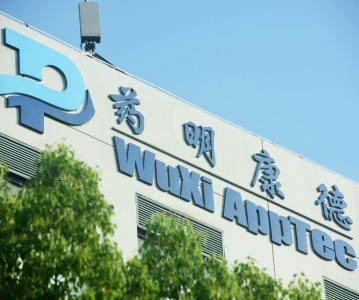Monoclonal antibodies headline innovation in gastric cancer treatment pipeline

GBI Research says pipeline consists of 29% monoclonal antibodies.
A new report from business intelligence provider GBI Research — Frontier Pharma: Gastric Cancer — states that while 99% of currently marketed gastric cancer drugs are small molecules, this dominance could give way to more innovative treatments in future, as the pipeline consists of 29% monoclonal antibodies (mAbs).
There are currently 241 products in the gastric cancer pipeline, a number of which have different mechanisms of action and targets to the dominant marketed therapies.
Associate Analyst Firas Nour says: "While Herceptin and Cyramza are the only mAbs currently on the market for gastric cancer, mAbs have shown strong clinical results and advantageous properties in numerous oncology indications, meaning they account for a relatively large proportion of many oncology pipelines.
"Data suggest that some biologics, such as mAbs, have more favorable risk profiles and, due to their higher target specificity, frequently perform more strongly in terms of both safety and efficacy than their synthetic counterparts. Moreover, the higher technological barrier for competitors to develop biosimilars can provide a further incentive.
"However, while the diversification of therapeutic molecule types for marketed and pipeline products have opened new clinical and commercial opportunities, this in itself is not a guarantee of future success, and investment in product development as well as manufacturing facilities is significantly higher."
GBI Research also states that the innovative gastric cancer pipeline will allow the treatment space to become more diverse and less reliant on highly cytotoxic chemotherapy regimens, providing hope for sufferers who currently face very low survival rates.
Nour explains: "24% of gastric cancer products in active development are considered to be first-in-class, suggesting that the industry is pursuing novel approaches to treatment, and reducing the focus on established therapies.
"First-in-class development can be highly lucrative if clinically successful, but is also associated with high risks, as clinical efficacy is certainly not guaranteed. Therefore, it must be considered that although having a high proportion of first-in-class products is a promising indicator in a pipeline, there is substantial variation in these products regarding their clinical promise and potential market impact."
Related News
-
News WuXi to sell CGT manufacturing unit to US-based Altaris LLC
At the tail end of 2024, Chinese-based CDMO WuXi AppTec announced the signing of their deal with private equity firm Altaris LLC, confirming the sale of WuXi Advanced Therapies, the cell and gene therapy manufacturing arm of WuXi AppTec. -
News Women in Pharma: Our hopes for 2025 and beyond
Our last instalment for 2024 of the Women in Pharma series brings you messages direct from the Informa Markets CPHI team as they discuss the advice and insights they have carried throughout their roles working at CPHI, and what they hope to see for the... -
News CPHI Milan Wrap-Up Report: Conference Highlights
Discover the emerging and trending topics of the pharmaceutical industry with our CPHI Milan Conference Highlights, with exclusive insight from pharmaceutical leaders and experts! -
News BIOSECURE Act not included in key defense spending bill for 2025
On December 7, 2024, the Biden administration revealed the 2025 National Defense Authorization Act, an annual defense bill specifying the budget and expenditures of the US Department of Defense. The controversial BIOSECURE Act was notably missing from ... -
News Lessons from CPHI Milan 2024: Sunny Intervals for Pharma Manufacturing?
As the 2024 CPHI conference wrapped up in Milan, we caught up with L.E.K. Consulting – a global strategy consulting firm with deep expertise in pharma manufacturing – to discuss evolving market perspectives and business outlook. -
News Trump 2.0: What does the US election result mean for the healthcare industry?
After Trump won the Presidential election in the US in early November, we take a look at some of the implications a new Trump administration could have on the health and pharmaceutical industry, and on US patients. -
News Women in Pharma: Reflections from Behind the Scenes
In this instalment of our monthly series, the team that brings you the Women in Pharma series each month sits down for a heart-to-heart on what the series means to them, and how they hope to continue their work in the future. -
News Scaling the Industry: CPHI Scale-Up Market interview with YSK Laboratories
For the first time, CPHI Milan hosted the CPHI Start-Up Market, expanding support for emerging and small-sized enterprises in their transition to the next level of growth. In this interview, we spoke with Yuvansh Khokhani, Managing Director of YSK Labo...
Position your company at the heart of the global Pharma industry with a CPHI Online membership
-
Your products and solutions visible to thousands of visitors within the largest Pharma marketplace
-
Generate high-quality, engaged leads for your business, all year round
-
Promote your business as the industry’s thought-leader by hosting your reports, brochures and videos within your profile
-
Your company’s profile boosted at all participating CPHI events
-
An easy-to-use platform with a detailed dashboard showing your leads and performance

.png)





